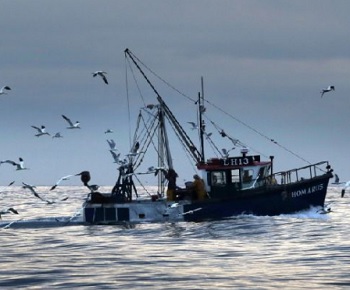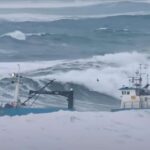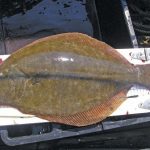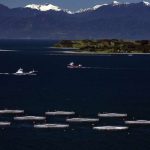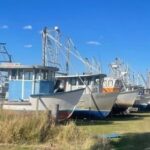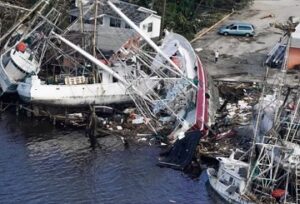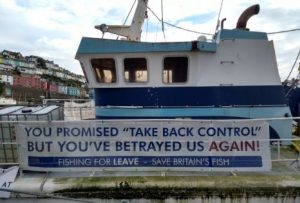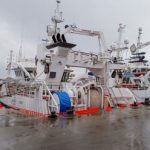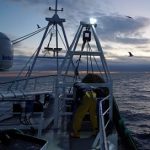Daily Archives: December 5, 2019
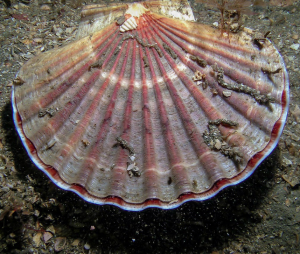
Scientific study finds Seismic testing significantly increases mortality in scallops.
A recently published study in the U.S. Scientific Journal Proceedings of the National Academy of Sciences, found that seismic air gun testing led to a significant increase in mortality among scallops along the Australian coast. No studies have been completed, [or even began] in the U.S. due to lack of funding by the U.S. Commerce Department controlled National Marine Fishery Service. >click to read< 19:57
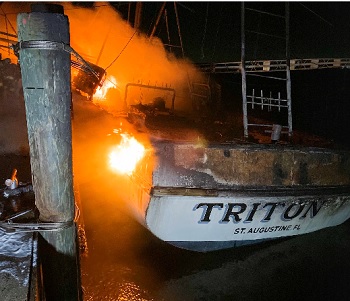
Family loses livelihood, launches fundraiser to recover from shrimp boat fire
Days after a fire sank two boats in the St. Johns River, the owner of the Triton II set up a GoFundMe page to help pay for the removal and recovery of the boat. “I’d like to personally thank everybody for just the love and support,” said Cristopher Thompson, the owner’s son. “My families very humble and grateful.” “It’s a tragic loss,” said Thompson. “It’s a huge financial loss for them. >click to read< To visit the GoFundMe page, and please donate if you can! >click here< 15:07
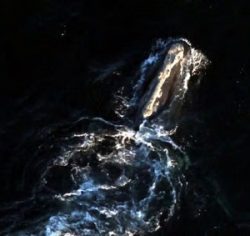
Maine congressional delegation wants more info before whale rules released
The four members of Maine’s delegation said Wednesday they want information from NOAA about how new findings will be incorporated into the draft rules. NOAA completed a peer review process of the data tool it’s using to create the regulations, and the delegation wants to know what impact that will have on the rules, the members said. >click to read< 14:03
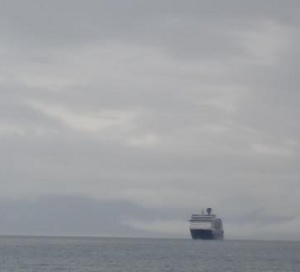
Researchers, marine pilots work to prevent vessel strikes from killing Alaska whales
Over the past decade, federal officials have logged 77 incidents of vessels hitting whales in Alaska waters. About three-quarters of those, were endangered humpbacks. But, it’s not clear why those strikes keep happening. A group of federal researchers and marine pilots have teamed up to combine what scientists know about whale behavior with what marine pilots know about ships.,,, That’s important as NOAA has logged 182 whale strikes in U.S. waters over the last decade. But that’s an undercount: ships aren’t legally required to report when they hit whale. And sometimes they don’t even know it’s happened. >click to read< 12:18
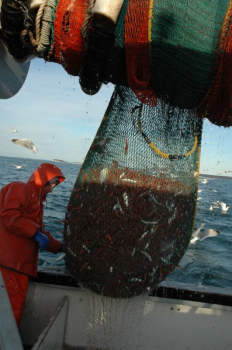
Northern Shrimp: Future not promising for shrimp fishery
The fate of the shrimp fishery for the coming year, if any, will likely be determined Friday afternoon when the Northern Shrimp Section of the Atlantic States Marine Fisheries Commission meets to review the 2019 Stock Assessment Update Report and updates from the section’s Summer Survey Work Group and the Northern Shrimp 2019 Summer Survey Results. The meeting will be held by telephone and interested parties may listen to the proceedings by joining in the conference call or by signing in to a “webinar” on the internet. >click to read< 09:29
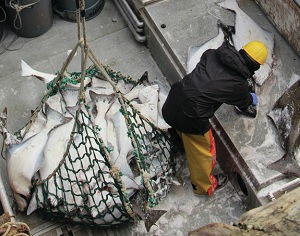
Uneven status of Pacific halibut revealed by annual data
Following the trend of the past several years, overall Pacific halibut biomass seems to be down again. The most recent stock assessment presented to the International Pacific Halibut Commission for its interim meeting on Nov. 25-26 shows a coastwide decline in spawning biomass, though that decline isn’t even across all areas. That’s a continuation of a trend seen in stock assessments since 2015. Particularly, surveys have indicated lower numbers of halibut in the central Gulf of Alaska. >click to read< 08:40
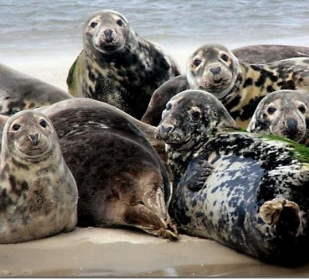
LETTER: Standing up for our fishery
A famous Newfoundland and Labrador politician was once asked about the impact of seals on the fish stocks off our coast. He replied using the wit many good Newfoundland orators are known for and said something to the effect of well, they don’t eat Kentucky Fried Chicken. He was absolutely right then and the same holds true today as we see thousands of tons of fish consumed daily off our shores by these cute-looking mammals with voracious appetites for cod, crab and other lucrative species; the same fish our harvesters and processors depend on,,, by Paul Lane >click to read< 07:21






